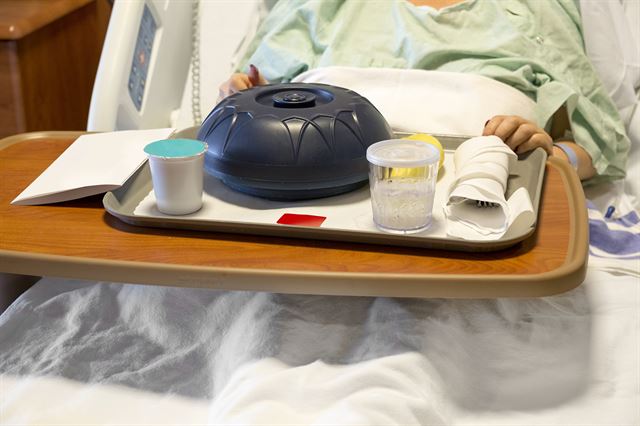
(P = patient 환자; HE = hospital employee 직원)
P: How should I pay the bill? Can I pay it when or after I leave the hospital? I was rushed to the emergency room, and didn’t have the time to prepare the money.
환자: 병원비는 어떻게 되나요? 퇴원할 때나 다음에 낼 수 있습니까? 지금은 급하게 응급실로 오느라고 돈을 준비하지 못했습니다.
HE: The exact billing amount will be confirmed by the hospital administration later.
직원: 정확한 병원비는 나중에 원무과에서 계산해 보셔야 알 수 있습니다.
P: Can I get an estimate right now? To prepare the money, I need to tell my family.
환자: 대충이라도 알 수 없을까요? 준비하려면 가족에게 비용을 알려야 해서 말이죠.
HE: Well, I can’t tell you the exact amount now, but a case like yours usually costs 20 million won.
직원: 네, 정확하게는 아직 알 수 없는 부분이지만, 보통 이런 경우에는 2,000만원이 필요합니다.
P: I see. I don’t have that kind of money with me right now. Can my family come and pay later?
환자: 네, 지금 당장은 돈이 없습니다. 나중에 가족이 와서 내도 괜찮습니까?
HE: Yes. You can leave the contact information of the family member that will be paying your bill, and tell him or her to fax his or her photo ID here now. Our fax number is 02-724-2868.
직원: 네, 그러면 가족 분 연락처를 알려주시고, 가족 분의 신분증을 이쪽으로 팩스 부탁 드립니다. 번호는 02-724-2868입니다.
P: Okay, I’ll call her right away.
환자: 네 알겠습니다. 지금 연락해 보겠습니다.
HE: We need to wait until the hospital administration determines the bill, but we require patients to pay approximately 50% of the average hospitalization fee upfront as a deposit.
직원: 원무과에서 정확하게 계산해봐야 알겠지만, 보통은 평균 입원 비용의 50% 정도를 미리 보증금으로 내셔야 합니다.
[주요 어휘]
estimate 추정(치), 추산 (= a calculation of the value, size, amount etc of something made using the information that you have, which may not be complete)
upfront 선불의 (= paid before any work has been done or before goods are supplied)
안성진 코리아타임스 어학연구소 책임연구원
기사 URL이 복사되었습니다.

댓글0